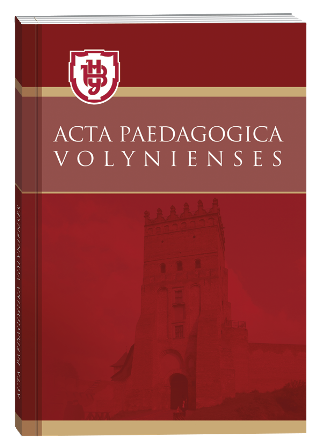APPLICATION OF MODERN ANALYTICAL METHODS IN THE TRAINING OF AN INTELLIGENCE OFFICER FOR CONDUCTING IPOE IN SOF OPERATIONS
DOI:
https://doi.org/10.32782/apv/2025.2.19Keywords:
сoncept of Analytical Superiority, intelligence officer, IPOE, analytical thinking, hybrid warfare, critical thinking, military specialist trainingAbstract
The article addresses the challenge of unifying the training of Special Operations Forces (SOF) intelligence officers in Ukraine’s military education system, particularly in the context of IPOE (Intelligence Preparation of the Operational Environment). This process requires both deep knowledge of intelligence disciplines and the ability to reconstruct complex situations, predict adversary actions, and make decisions under uncertainty. In response, the Concept of Analytical Superiority is proposed as an innovative pedagogical model that integrates cognitive, methodological, and operational levels of analytical competence. Unlike traditional approaches focused on routine procedures, the concept emphasizes developing proactive thinking, adaptability, and predictive decision-making. It is implemented within current military education subjects, using applied methods such as hypothesis testing, mind mapping, and analytical scenario development. Special attention is paid to the instructor’s role as a facilitator of cognitive growth, critical engagement, and intellectual initiative. As a result, the concept shapes a new type of officer–one who combines information-processing skills with analytical insight, capable of modeling situations, influencing developments, and initiating information-driven actions in hybrid warfare. This model promotes the renewal of educational programs in military higher education institutions, aligning them with the evolving demands of SOF and strengthening the analytical culture within the national defense framework.
References
Bruner, J. S. (1960). The process of education. Cambridge, MA: Harvard University Press.
Shadrik, S. B., & Lussier, J. W. (2009). Training complex cognitive skills: A thematic approach to developing combat abilities. In K. A. Ericsson (Ed.), Development of professional expertise: Toward measurement of expert performance and design of optimal learning environments (pp. 286–311). Cambridge University Press.
Швець, В., & Павлова, І. (2023). Значення показників когнітивної сфери в професійно-прикладній підготовці військовослужбовців. Фізичне виховання, спорт і культура здоров’я в сучасному суспільстві, 3(63), 40–46.
Heuer, H., Schmidtke, V., & Kleinsorge, T. (2001). Implicit learning of sequences of tasks. Journal of Experimental Psychology: Learning, Memory, and Cognition, 27(4), 967–982. https://doi.org/10.1037/0278-7393.27.4.9675. Garner, G., & McGlynn, P. (2018). Intelligence analysis fundamentals. CRC Press.
Максименко, Ю. А., Маміч, В. В., Дідик, В. О., Шаршаткін, Д. Ю., & Король, Д. А. (2024). Дослідження можливостей структурованих аналітичних методів в інформаційно-розвідувальній роботі. Збірник наукових праць Військового інституту Київського національного університету імені Тараса Шевченка, (83), 100–106. https://doi.org/10.17721/2519-481x/2024/83-09
Schwille, M., Atler, A., Welch, J., Paul, C., & Baffa, R. C. (2020). Intelligence support for operations in the information environment: Dividing roles and responsibilities between intelligence and information professionals (Research Report No. RR-3161). RAND Corporation. https://apps.dtic.mil/sti/trecms/pdf/AD1117509.pdf
Мішков, О., Верещак, В., & Денисенко, І. (2019). Методика оцінювання противника за стандартами НАТО: навчально-методичний посібник. Воєнно-дипломатична академія імені Євгенія Березняка.
Kem, J. D. (2006). The use of case studies as an integrating approach in professional military education: A pilot study. Essays in Education, 18(1), Article 6. https://openriver.winona.edu/eie/vol18/iss1/6
Бирко, Н. М. (2018). Ролі сучасного педагога в освітньому просторі. Науковий часопис НПУ імені М. П. Драгоманова. Серія 16: Творча особистість учителя: проблеми теорії і практики, (30), 3–7.
Ericsson, K. A. (Ed.). (2009). Development of professional expertise: Toward measurement of expert performance and design of optimal learning environments. Cambridge: Cambridge University Press.







